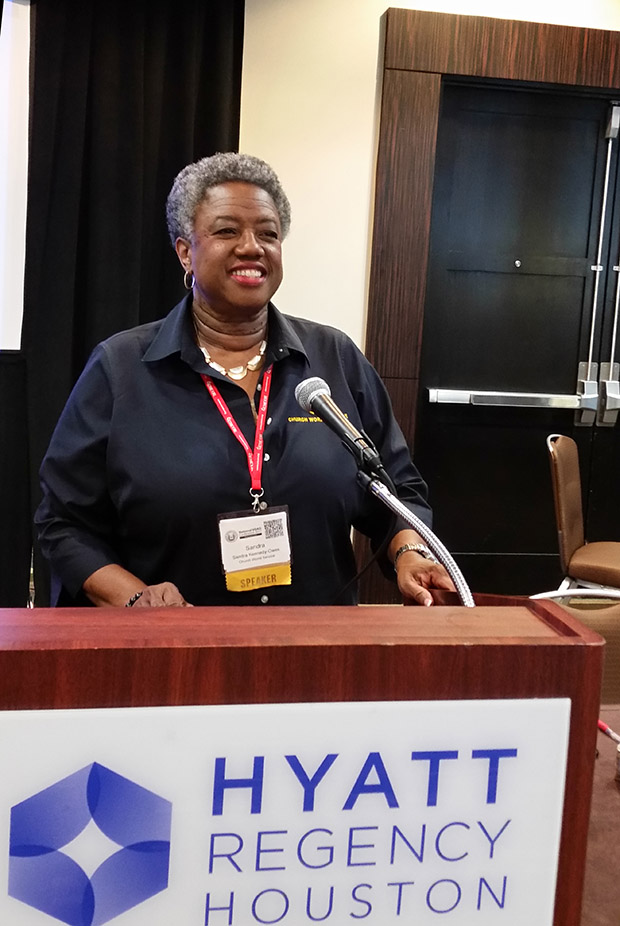
CWS Emergency Response Specialist Sandra Kennedy-Owes presents at the NVOAD conference. Photo: Elizabeth Frank / CWS
I recently attended my first National Voluntary Organizations Active in Disaster – or VOAD – annual conference in Houston, Texas. My colleague, Emergency Response Specialist Sandra Kennedy-Owes, participated in a great panel discussion on “Caring for the Hidden Community.” She spoke about CWS’s pilot program working with immigrant and refugee communities. The session had a great response, with around 70 people attending, and it was very well received.
At the end of the session, one of the panelists related to the audience that she came to the United States as a young child as a refugee with her family. She said it was difficult for her father to answer a question posed by those working with the family: “What do you need?” Culturally, he found it very hard to admit he needed anything or that he could not provide everything his family needed.
Like that family and many others, our Domestic Disaster Program has been on a journey the last two years. We have been piloting a new approach to our work, focusing on immigrants and refugees, and particularly communities with vulnerable individuals and families. Like many of the journeys these individuals have taken over the years, the pilot has met challenges along the way. At times it’s hard for us to know what we have needed to be successful. But also like many who have journeyed and had to start over, I am excited about the future and where the program is going.
The panel discussion reaffirmed to me that our approach is strong, and a key component to our program is building trust. We work through community leaders and community organizations that already have trust with community members. We then work to build community members’ trust – both for our program, but also for the disaster network more broadly. An audience member talked about whole community disaster response, which again resonated with our approach of incorporating marginalized communities into the broader disaster response.
I was also reminded that there are still many opportunities to continue building and strengthening our approach. I attended one session on using data to strengthen partnerships in preparedness and another that considered similarities and differences between U.S. and international disaster work. Both of these offer us avenues to further explore how we can better serve communities affected by disaster, including by working with CWS’s international program teams to exchange ideas and share program approaches.
Often a question that comes to mind for disaster work is, “What do people need?” In international development and humanitarian work, that question has shifted to focus more on “What rights are people not able to access?” By working together with communities through trusted members and leaders to better understand their communities, their strengths and their resilience, we can take the next step to ensure that all those affected by disaster are able to exercise their rights.
Elizabeth Frank is the Program Officer, Humanitarian and PME Programs, at CWS.
